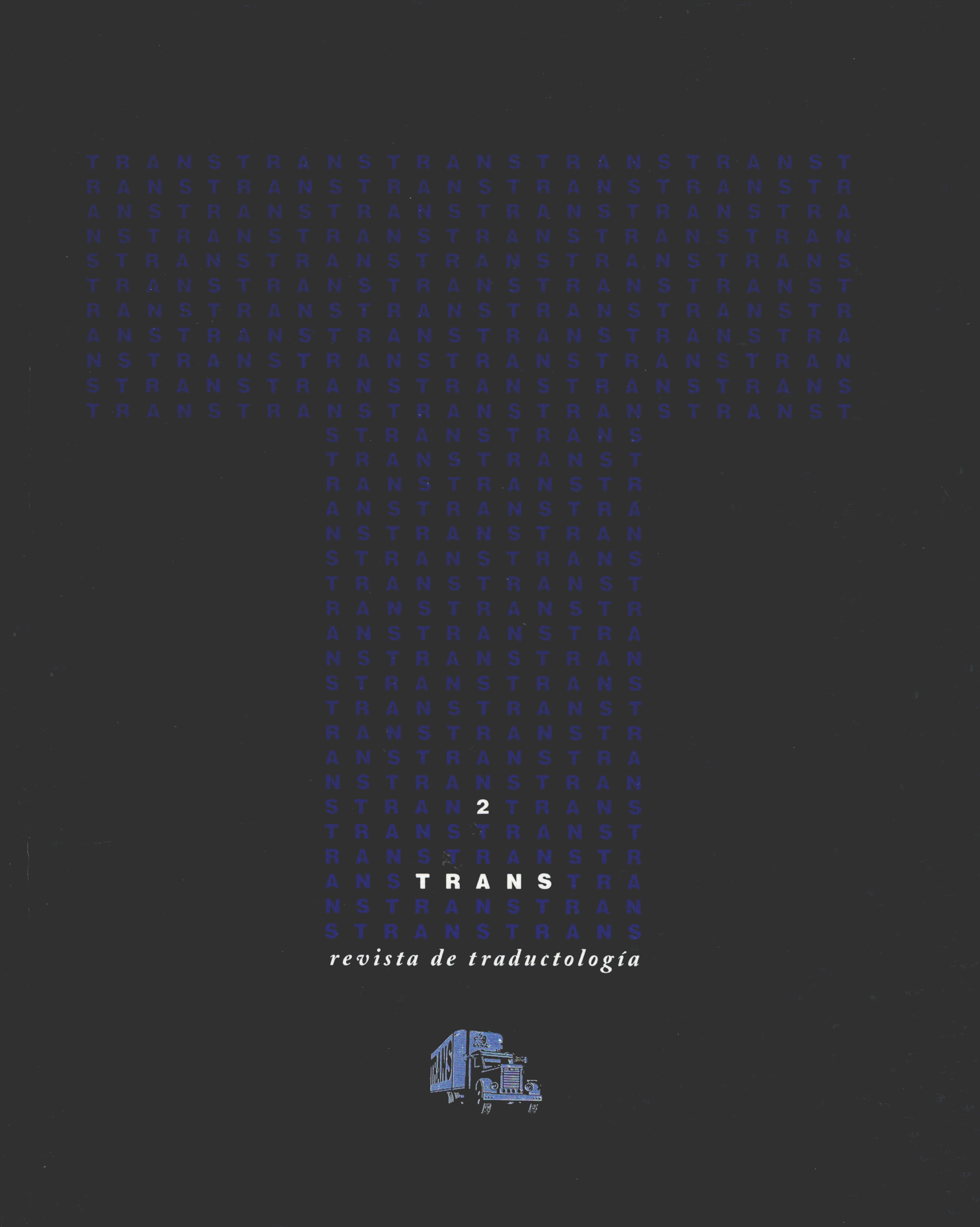La versión catalana de Who's afraid of Virginia Woolf?, de Edward Albee: El caso de un original doblemente traicionado
DOI:
https://doi.org/10.24310/TRANS.1998.v0i2.2360Abstract
Who's afraid of Virginia Woolf? (1962) es una de las obras más importantes del teatro norteamericano y, sin duda, la más popular de su autor, Edward Albee. En 1990 se estrenó en Barcelona una versión catalana de la misma, cuyo título era Qui té por de Virginia Woolf?. La traducción era de Jordi Arbonès y la puesta en escena de Hermann Bonnin, con dramaturgia de Joan Casas. Al original americano no se le dispensó un tratamiento ejemplar ni por parte de su traductor ni de su adaptador. La puesta en escena redujo la obra original a la mitad. Por si eso fuera poco, el texto en que se basaba no era una traducción del original inglés, como cabría esperar, sino de una versión argentina realizada en los años 60, y contenía, por ello, importantes desviaciones con respecto a lo escrito por Albee. En algunos casos esto tuvo lugar en pasajes de crucial importancia para el sentido global de la pieza. El presente trabajo trata de demostrar la doble traición sufrida por el texto de Edward Albee, centrándose, lógicamente, en la cometida por su traductor.
Downloads
Metrics
Publication Facts
Reviewer profiles N/A
Author statements
Indexed in
-
—
- Academic society
- N/A
- Publisher
- Universidad de Málaga
Downloads
Published
How to Cite
Issue
Section
License
All contents published in TRANS. Revista de Traductología are protected under the Creative Commons Attribution-NonCommercial-ShareAlike 4.0 International (CC BY-NC-SA 4.0) license. All about this license is available in the following link: <http://creativecommons.org/licenses/by-nc-sa/4.0>
Users can copy, use, redistribute, share and exhibit publicly as long as:
- The original source and authorship of the material are cited (Journal, Publisher and URL of the work).
- It is not used for comercial purposes.
- The existence of the license and its especifications are mentioned.
- ShareAlike — If you remix, transform, or build upon the material, you must distribute your contributions under the same license as the original.
There are two sets of authors’ rights: moral and property rights. Moral rights are perpetual prerogatives, unrenounceable, not-transferable, unalienable, imprescriptible and inembargable. According to authors’ rights legislation, TRANS. Revista de Traductología recognizes and respects authors moral rights, as well as the ownership of property rights, which will be transferred to University of Malaga in open access.
The property rights are referred to the benefits that are gained by the use or the dissemination of works. TRANS. Revista de Traductología is published in an open access form and it is exclusively licenced by any means for doing or authorising distribution, dissemination, reproduction, , adaptation, translation or arrangement of works.
Authors are responsable for obtaining the necessary permission to use copyrighted images.













21.png)
